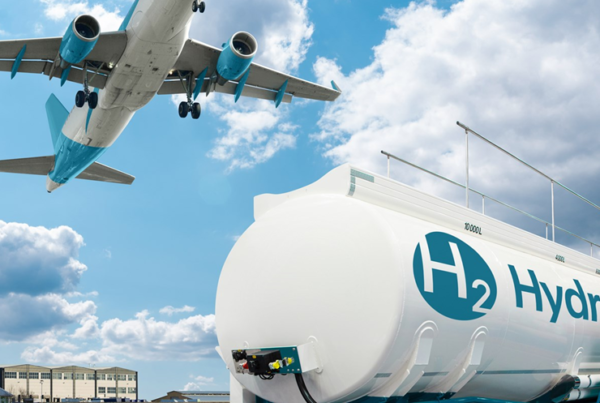
- Project HEAVEN aims to integrate high-performance fuel cells and cryotechnology into an existing aircraft.
- H2FLY assumes project leadership after being the development lead.
- First passenger aircraft flying on liquid hydrogen (LH2) due to take off in 2023.
Stuttgart – H2FLY, the Stuttgart-based company specializing in the development of hydrogen fuel cell systems for aircraft, has been appointed project lead of the HEAVEN initiative. The aim of Project HEAVEN is to design, develop and integrate an aviation powertrain based on high-performance fuel cells and cryogenic technology into an existing aircraft – and then test it in flight.
H2FLY has previously held direct responsibility for the fuel cell system, the “HY4” integration platform and the aircraft system architecture (including control of the fuel cell and LH2 tank systems) and, building on this experience, will now assume leadership for the project.
As well as managing close collaboration between the partners, H2FLY will be directly responsible for the achievement of the project’s goals, reporting to them to the European Commission which is funding HEAVEN together with Spain, France, Germany and Slovenia under the “Horizon 2020” research and innovation programme.
H2FLY is assuming leadership of the project as progress continues to be made on integrating the LH2 tank system. As the company announced a few weeks ago, this phase will be completed in the coming months. An extensive campaign of tests is planned to start in early 2023 with the “HY4” testbed, and the aircraft is expected to become the first passenger aircraft to fly on liquid hydrogen.
Professor Josef Kallo, co-founder and CEO of H2FLY, said: “HEAVEN is a groundbreaking project set up to advance fundamental developments in the field of hydrogen propulsion, and move a huge step closer to our goal of zero-emission aviation. We’re delighted to be taking on the overall project management and further expanding the excellent cooperation with our established partners.”
Read the most up to date Fuel Cell and Hydrogen Industry news at FuelCellsWorks
About HEAVEN:
Project HEAVEN is funded by the Fuel Cells and Hydrogen 2 Joint Undertaking (FCH 2 JU) under grant agreement no. 826247. The public-private partnership FCH 2 JU supports research, technology development and demonstration activities in fuel cell and hydrogen energy technologies in Europe. HEAVEN is part of the “Horizon 2020” research and innovation programme funded by the European Union as well as Spain, France, Germany and Slovenia.
In addition to H2FLY, the HEAVEN consortium is made up of the following partners: Air Liquide Advanced Technologies (the designer and supplier of cryogenic tanks), Pipistrel Vertical Solutions (which supports the integration and testing of the tank), the DLR German Aerospace Center (which supports the operation and testing of the high-performance fuel cell and system architectures), and EKPO (which works on the fuel cell stack
About H2FLY:
H2FLY was founded by five engineers from the German Aerospace Center in Stuttgart and the University of Ulm and is working to deliver to market the first qualified, fully hydrogen- electric aircraft powertrain. By bringing hydrogen fuel cell technology to the next level, H2FLY will unlock the era of emission-free, sustainable air travel. The company develops hydrogen- electric propulsion systems for aircraft and is a global leader in the development and testing of such systems. The HY4, the world’s first hydrogen-electric passenger aircraft, first took off in 2016, demonstrating both the feasibility and potential of this technology for the aviation of the future. H2FLY has a powerful network of partners in industry and research, and is currently working to accelerate its technology development and commercialization with the support of German and European partnerships. In just a few years, hydrogen-electric aircraft are expected to be able to transport 40 passengers over distances of up to 2,000 kilometres (1,240 miles).
For more information, please visit: www.H2FLY.de




